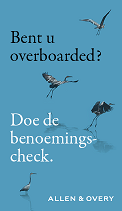Sibylle Würthner (TenneT): ‘We Need to Repair the Foundation First’

Did TenneT live up to your hopes and expectations?
Yes – in more ways than I had imagined. They really value what I think and say. At my previous employers, a certain amount of politically correct behavior was expected and you had to describe certain problems so that they sounded less serious. For the first time in my entire working life, I received feedback that I could be more honest. That is completely in line with our ongoing transformation as a company. TenneT still very much has a strong family business culture, where conveying difficult messages is not seen as easy. We encourage people to do that and to realize that you will not be silenced, but that you will be listened to and taken seriously. At the same time, employees need to learn to live with the fact that they cannot have their say on every single issue, as was the case when we were a much smaller company. Now they have to trust that those who make certain decisions are the right people to make those decisions. Also things will still move in the right direction even if no opinion is asked for. Being aware of when you know enough about an issue to make a meaningful contribution to a discussion and when it is better to just listen... that is where we really need to give people more training.’
How would you describe TenneT’s raison d’être, its ‘original myth’?
‘TenneT wants to have a top position in the energy transition in the future, but the current way of working no longer works – on many levels. One of TenneT’s advantages – that it is a two-country organization – needs to be clearly reflected in the way we work together. We have Dutch and German projects, but the issues behind those projects are very similar. It would be nice not to keep reinventing the wheel on both sides, but to arrive at joint solutions and a European mindset instead. Sometimes this happens automatically because people quickly realize the added value. However, there are other areas where – partly due to cultural differences – we are still very far from achieving the desired result. Difficult is that on the one hand, we are the company that ensures security of supply and on the other hand, we are the company that wants to tackle the energy transition on a large scale. This results in very concrete, sensitive dilemmas. For example, we might ask people in supply of security to come up with smart ideas to postpone maintenance for a while as the money would be better spent on developing the energy transition. To ensure that individual employees understand the relationship between the two, we have to do a lot of storytelling and explain that they have to get out of their comfort zone now in order to keep TenneT healthy in the long term.’
What are the strategic implications for the projects you want to initiate as Director People?
'The Human Resources department is very similar to all the other departments within TenneT. When I started working here, I encountered systems and tools that were over ten years old, and that often differed between locations and departments. Switching between tools and processes can make my team’s work complex and unchallenging. That is why the first thing we need to do now is create uniform IT solutions that will help us get reliable data quickly and easily. I have lots of ideas about what could be done better and differently, but it is not worth investing energy in those things now because we will not be able to implement them anyway. The same applies to me as to my team: Be patient and repair the foundation first, so that we can later, hopefully, take quick steps to moving faster.’
What kind of leadership is required in order to take that extra step?
‘A lot comes down to authenticity: Being aware of your strengths and weaknesses, admitting mistakes and trying to learn from them more publicly so that people understand that you go through the same development and emotions as everyone else. Check and double-check regularly – with yourself, your partner, friends or a coach – whether you are still on the right track. I think authentic leadership is the key to future leadership.'
This article was last changed on 18-11-2021

